Intel Xeon Platinum 8176 Scalable Processor Review
Why you can trust Tom's Hardware
The Lewisburg Chipset
Lewisburg Platform Controller Hub
The C620-series "Lewisburg" chipset replaces Intel's previous-gen C610-series "Wellsburg" PCH. Lewisburg adds several improvements, such as four additional SATA 6Gb/s and USB 3.0 ports. It features a DMI 3.0 interface, which is similar to a PCIe link between the processor and chipset. That's a nice doubling of throughput compared to C610's 2 GB/s DMI 2.0. The chipset also adds 12 additional PCIe 3.0 lanes and supports up to 25 HSIO (High Speed I/O) lanes.
A new CPU uplink option can provide eight and/or 16 PCIe lanes directly to the processor (separate from DMI).
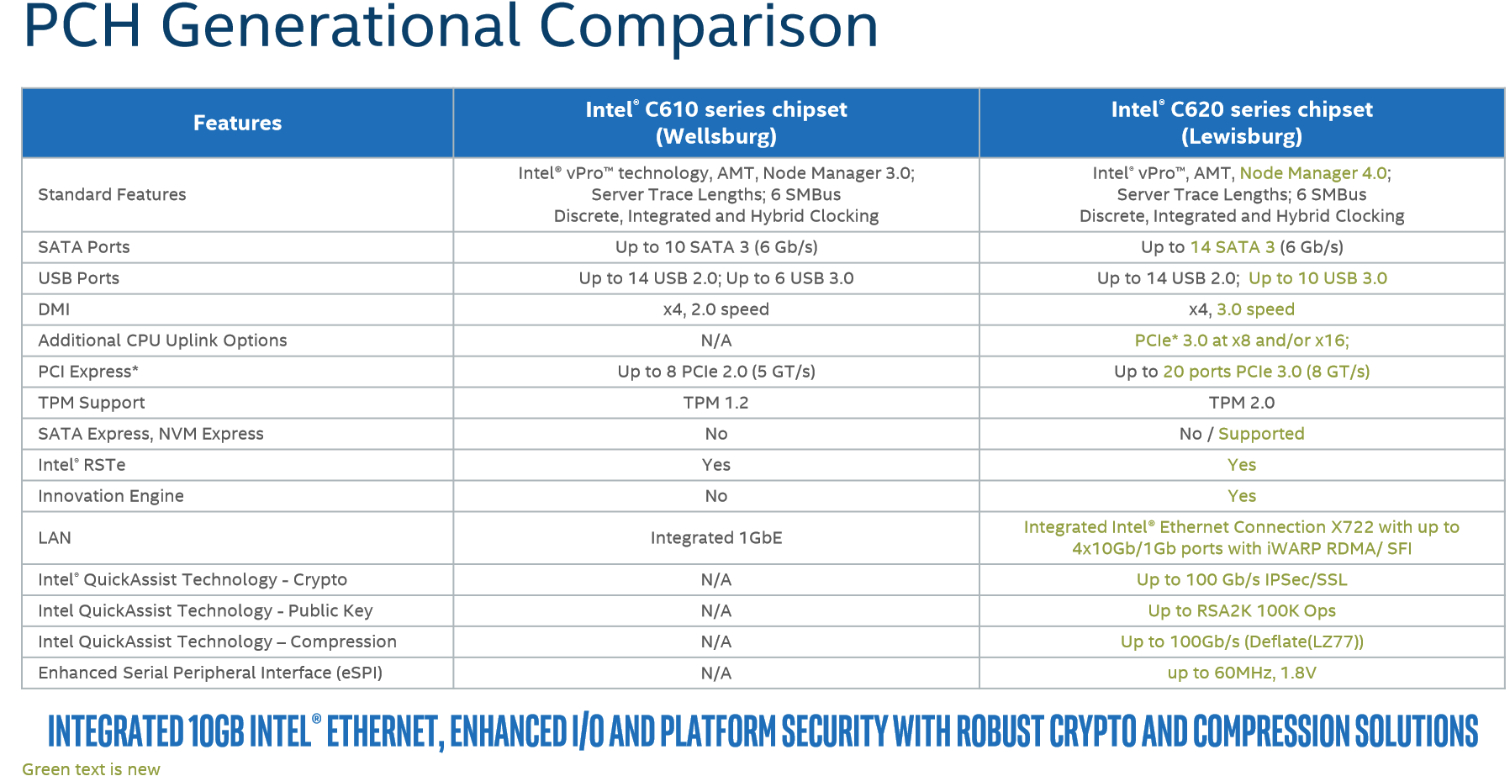
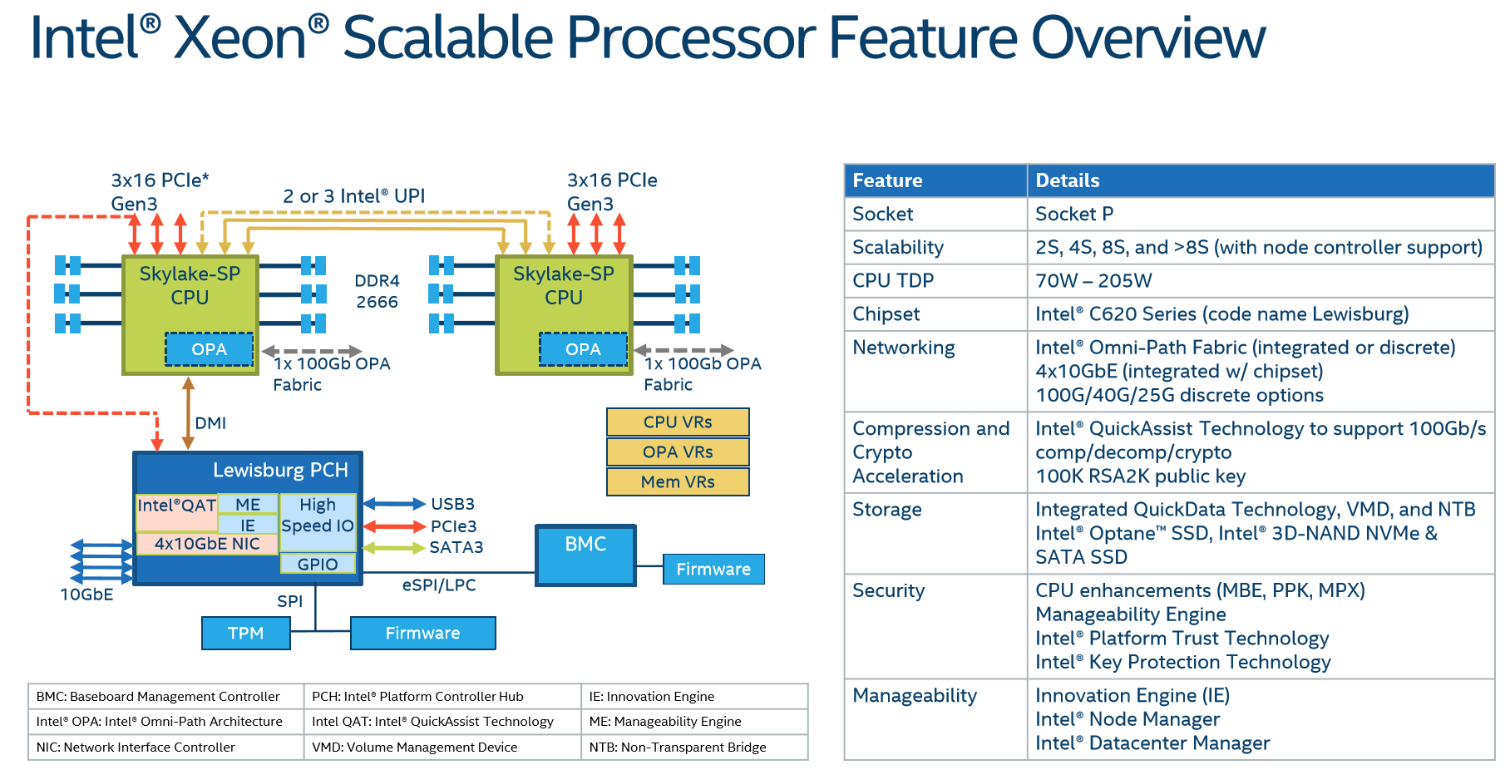
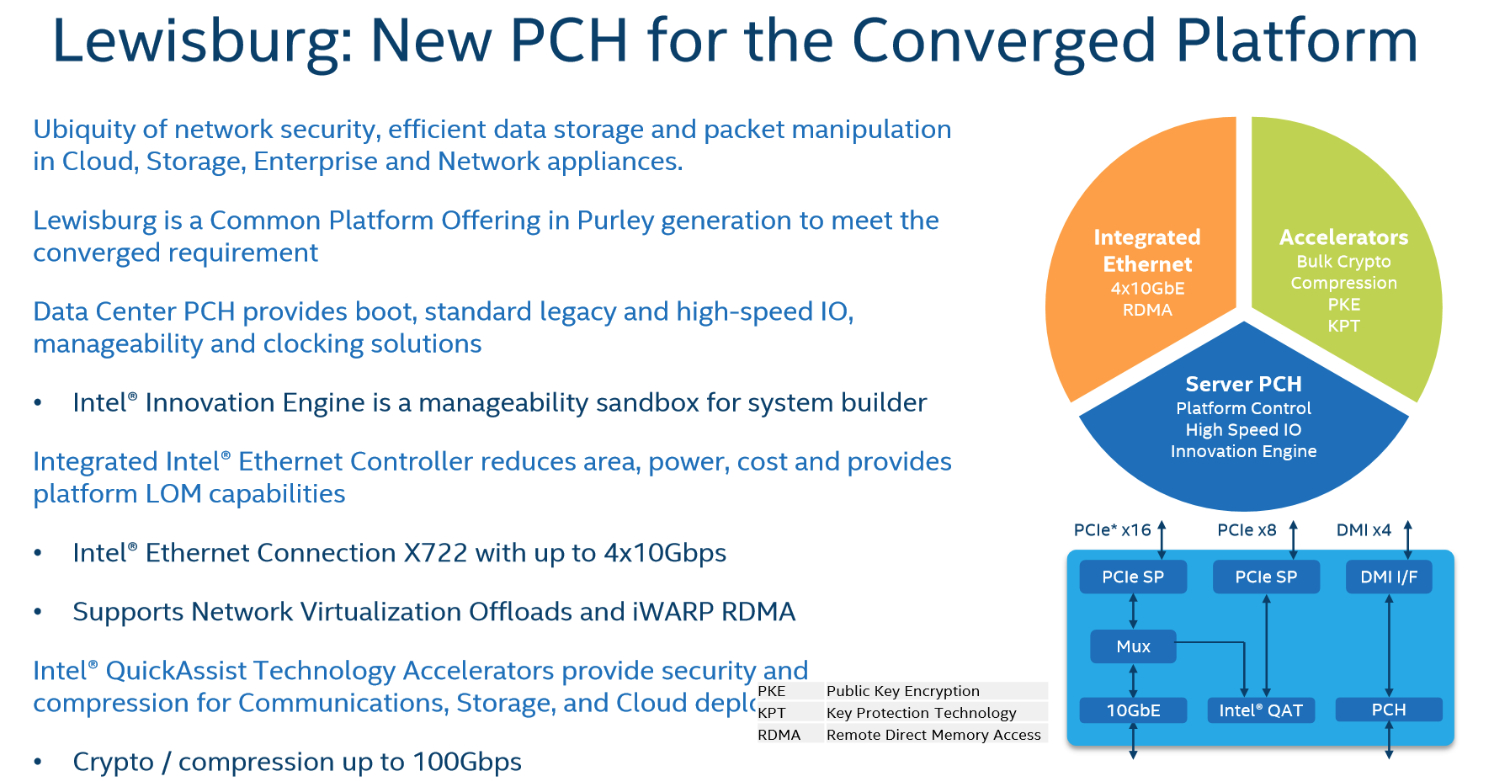
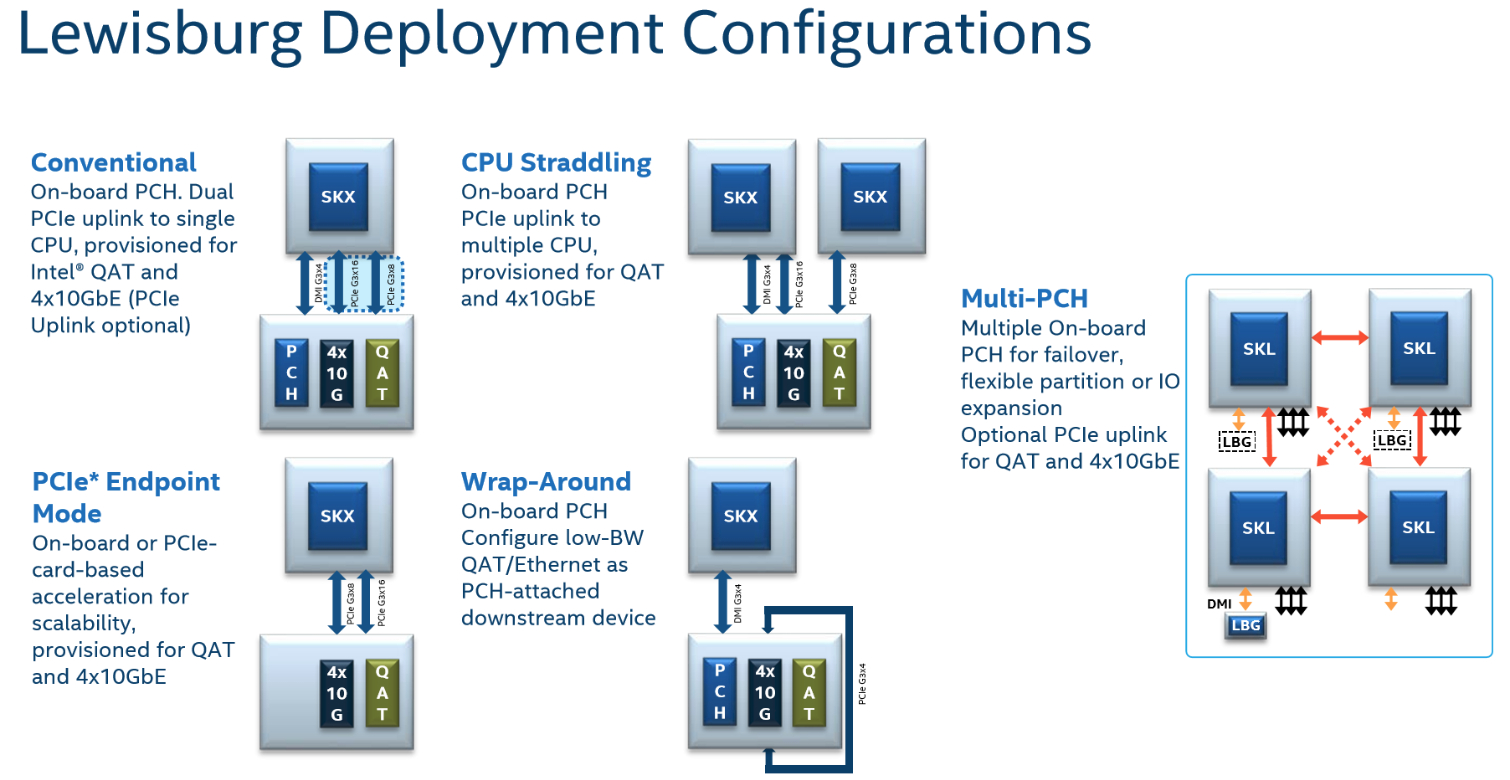
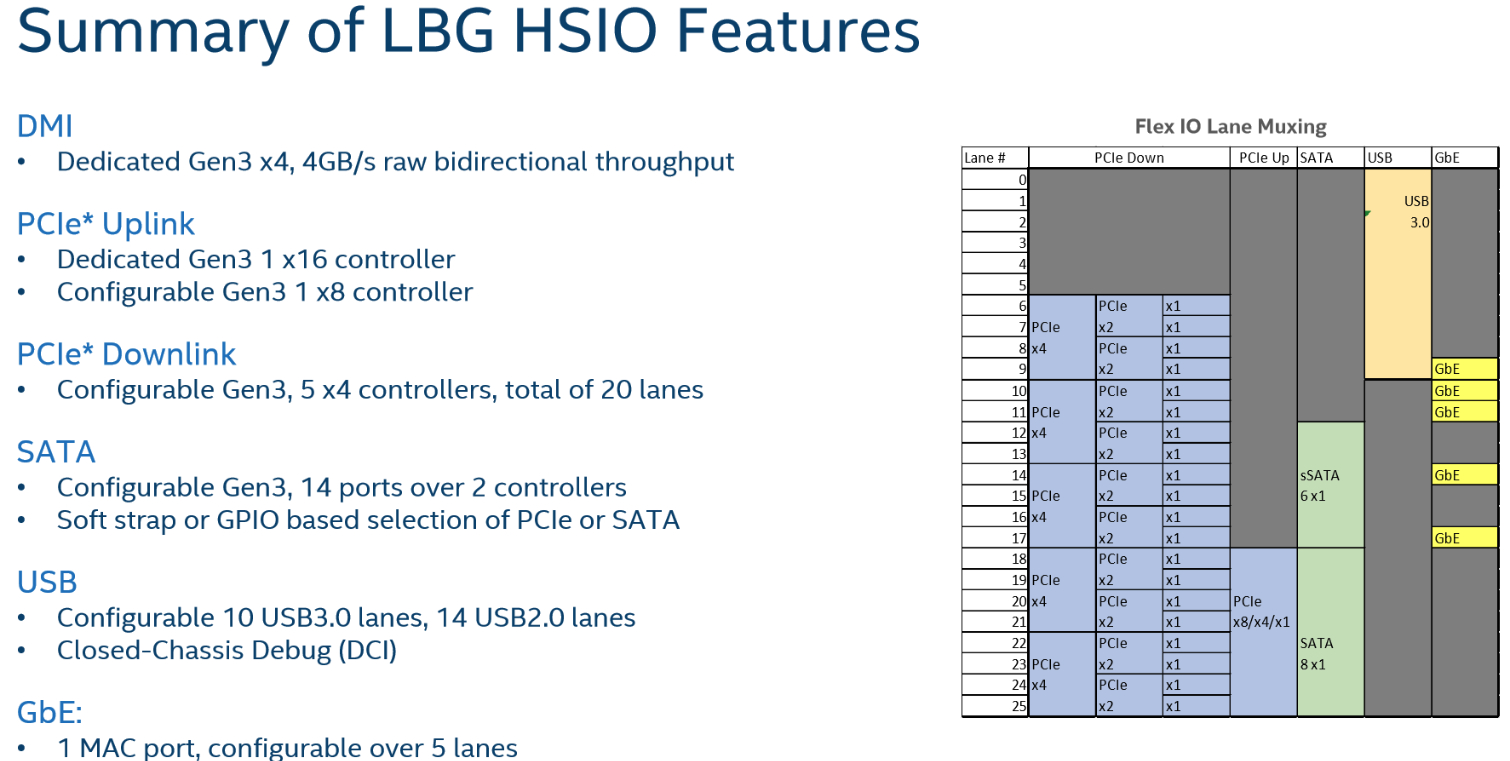
Perhaps most important, Intel now has chipset options with a built-in X722 Ethernet controller that provides up to 4x10Gb/1Gb ports supporting iWARP RDMA and network virtualization offloads. There are also QuickAssist hardware offload accelerators that augment cryptography and compression/decompression performance. Notably, these additions don't consume DMI bandwidth. Instead, they utilize the CPU uplink to populate lanes connected directly to the processor. The x8 and x16 uplink options support a number of routing schemes, as outlined in the Lewisburg Deployment Configurations slide.
Vendors can configure a maximum of one PCH per CPU socket, but rarely extend beyond four per motherboard (even in eight-socket systems). Multiple PCHs increase I/O and accelerator capabilities and also allow the system to survive a chipset failure via failover.
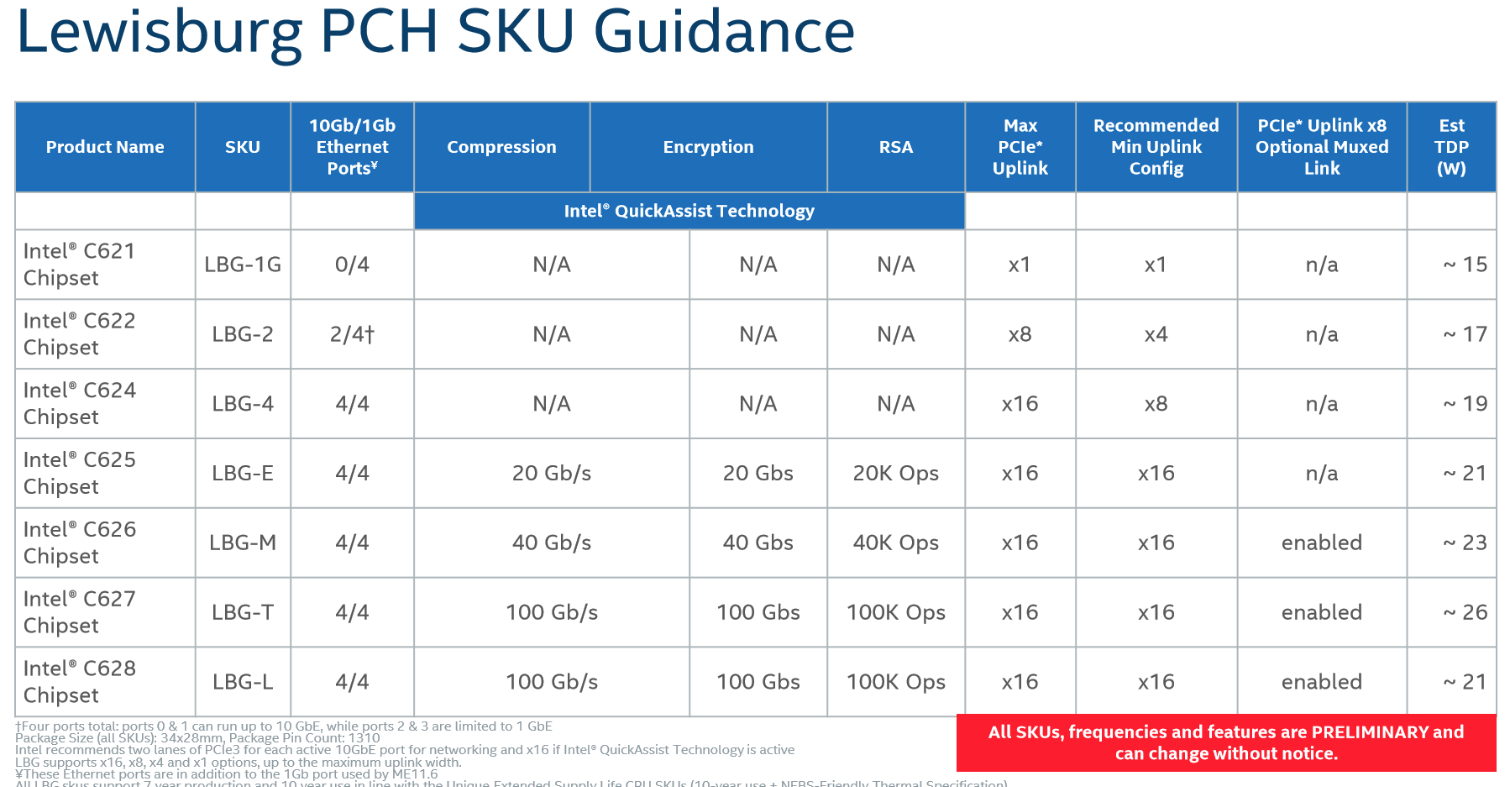
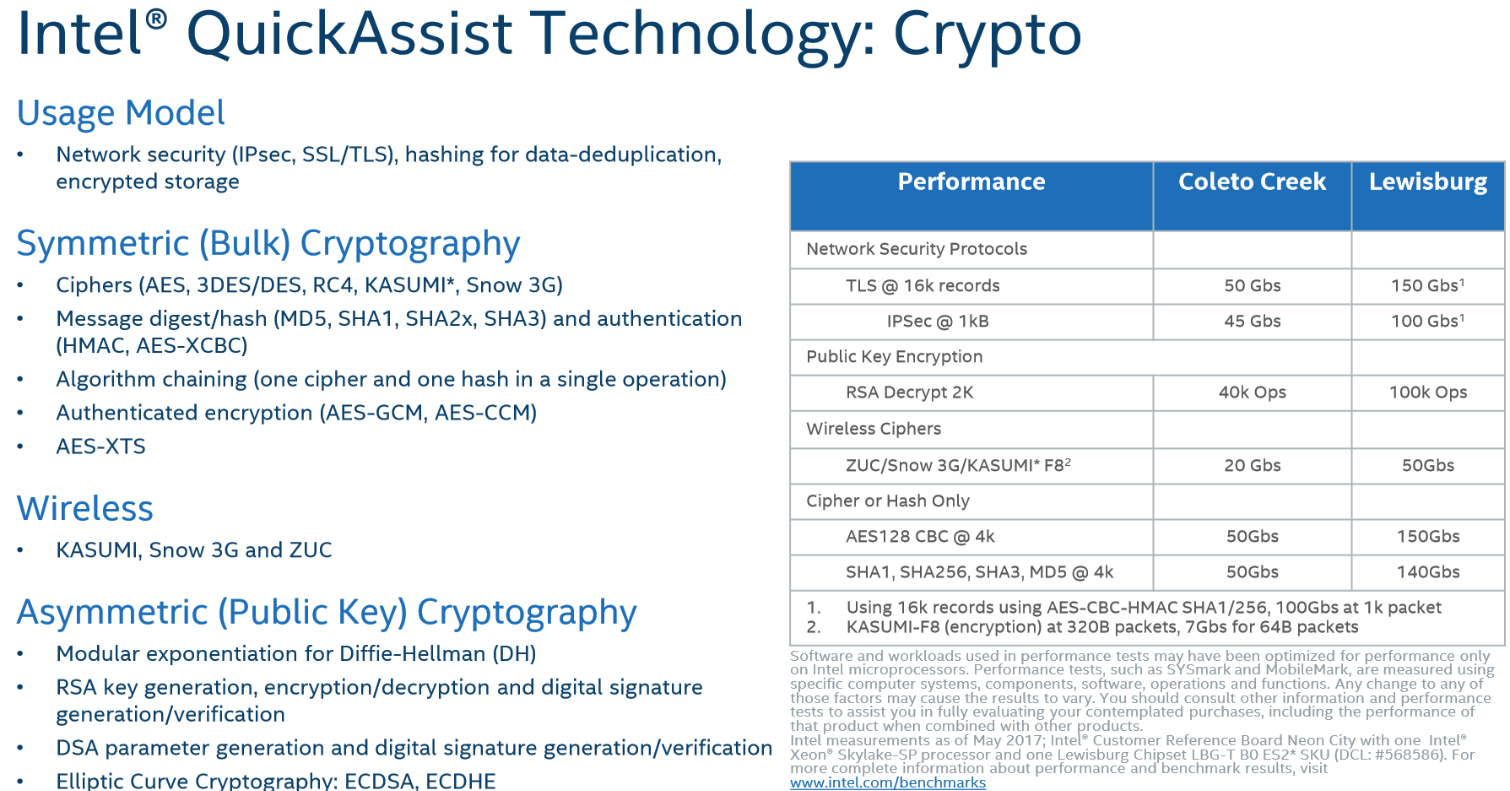
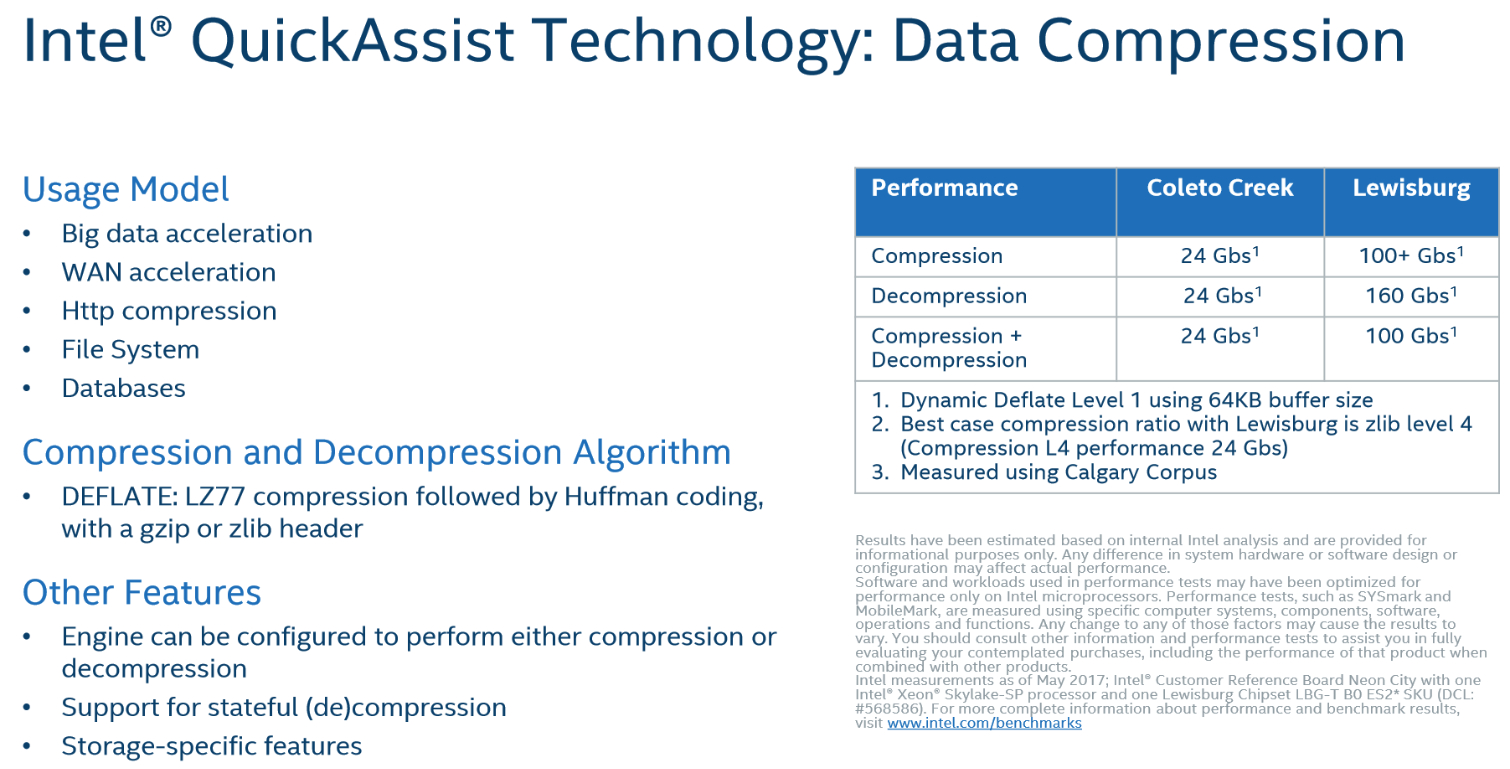
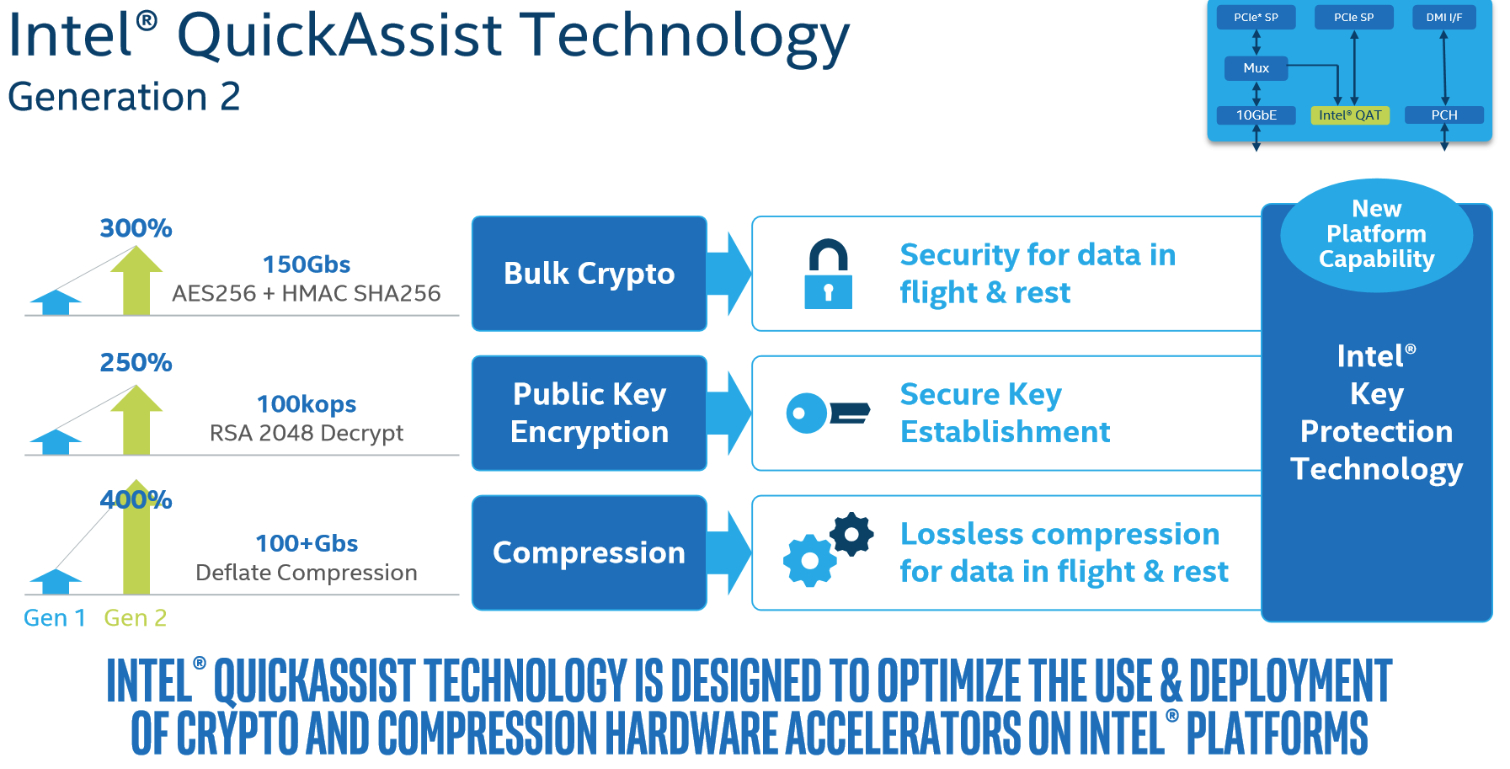
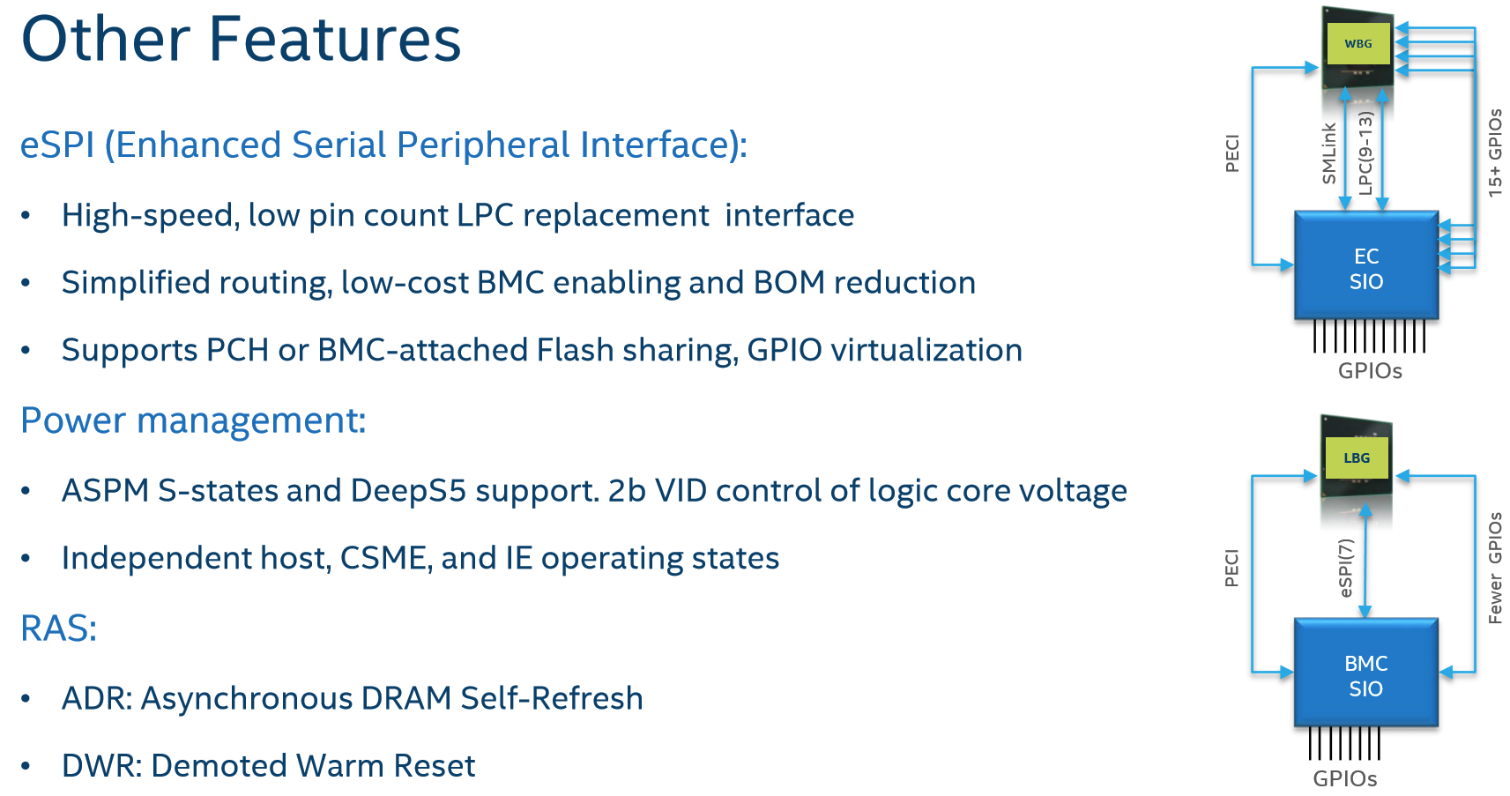
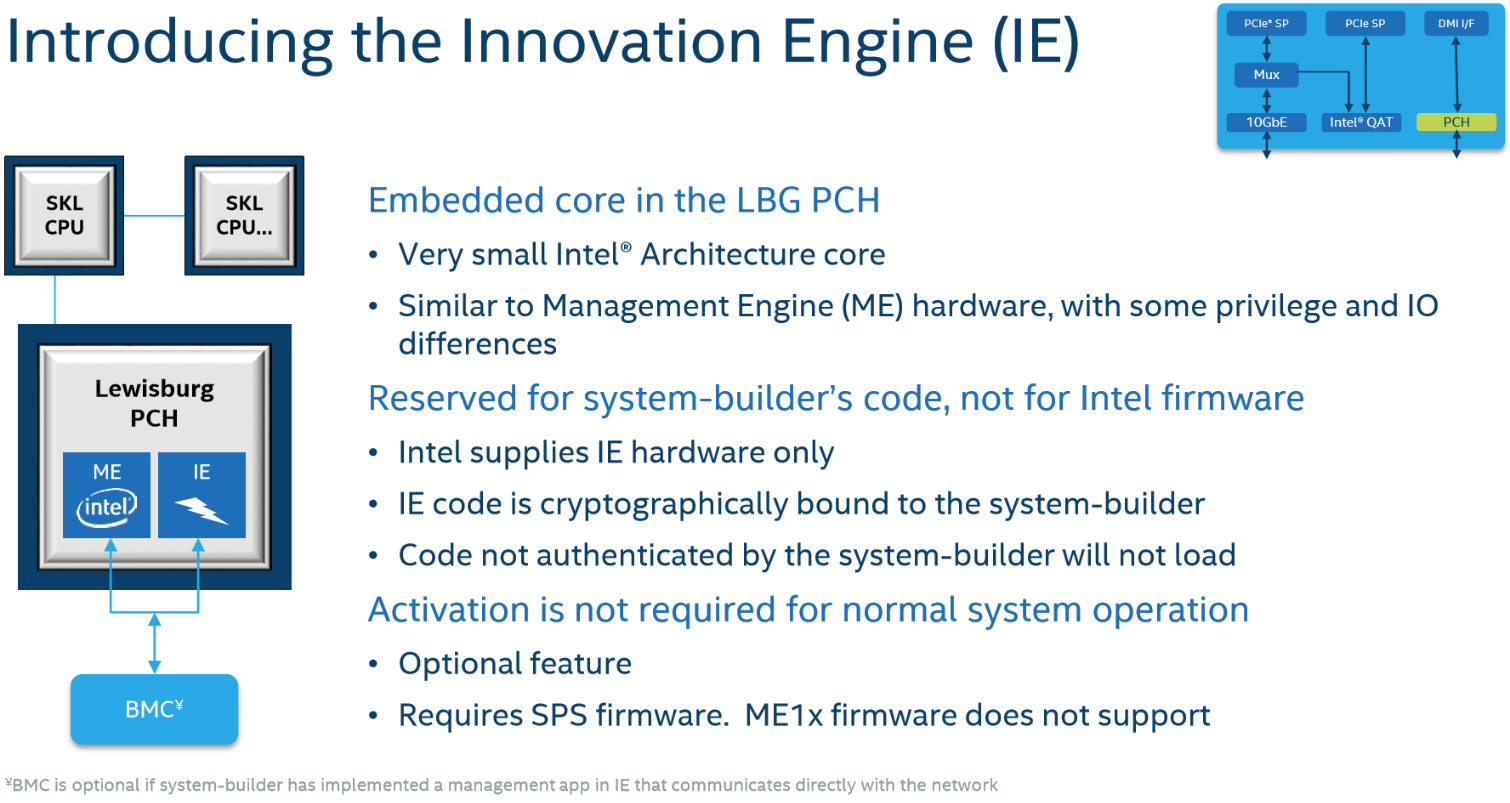
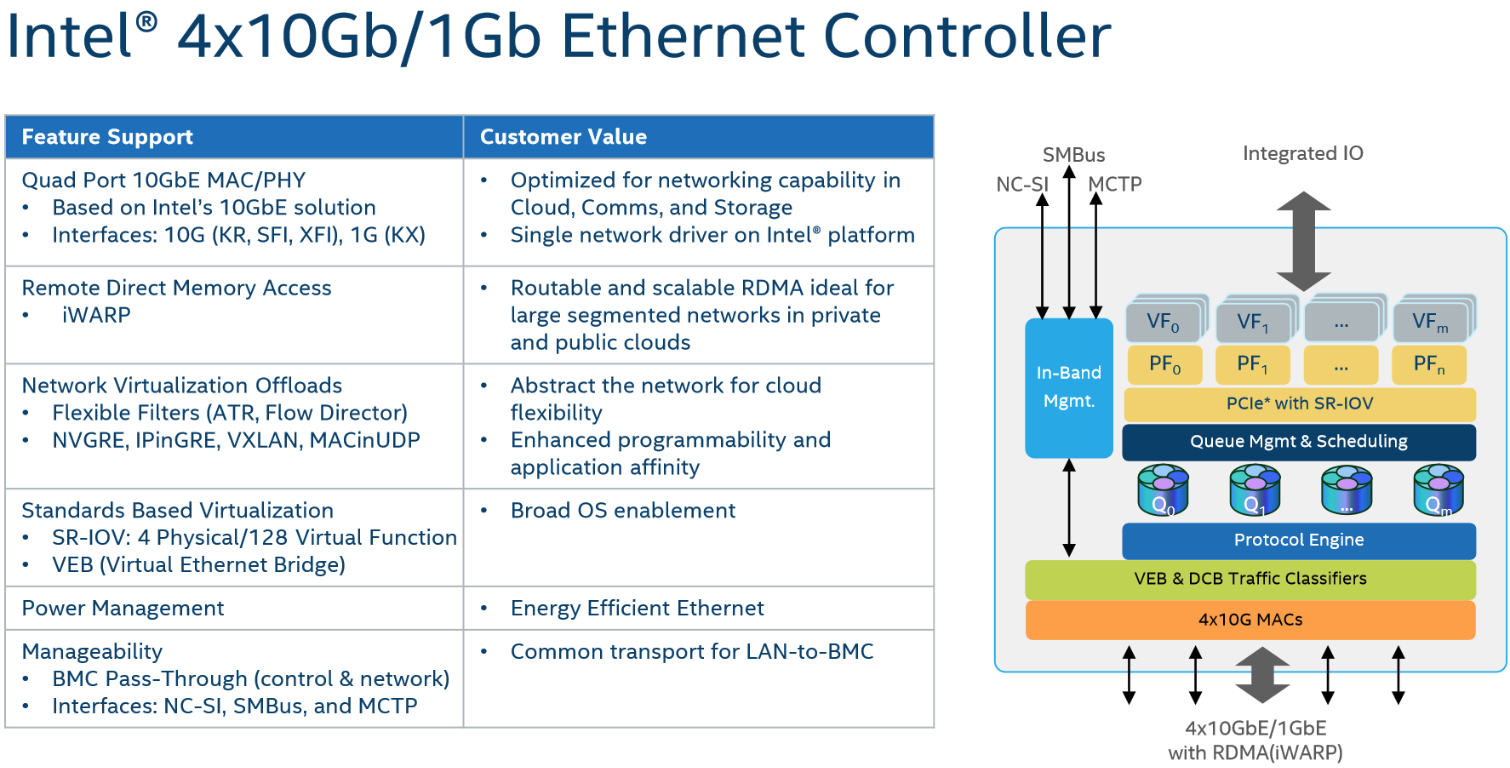
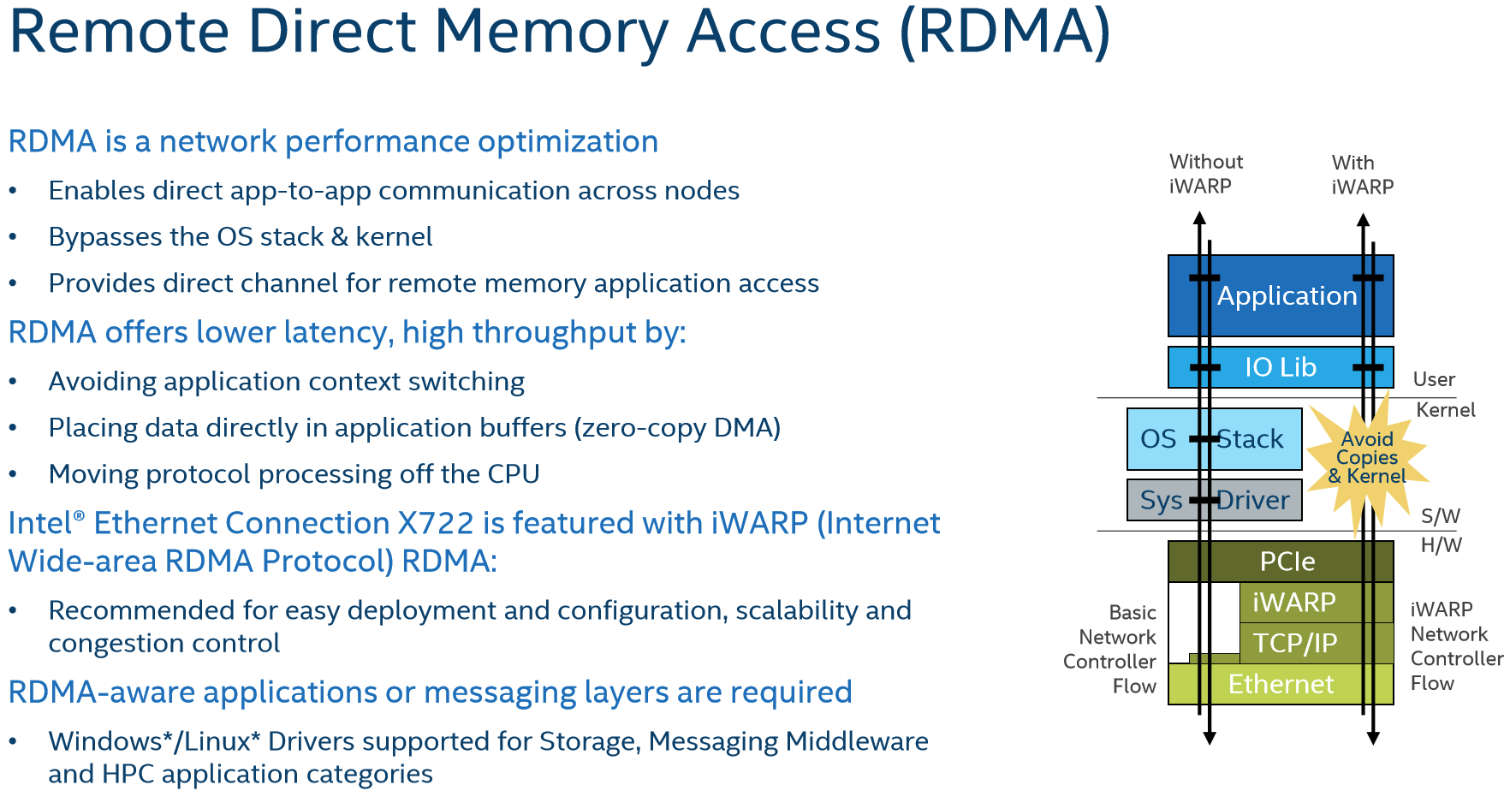
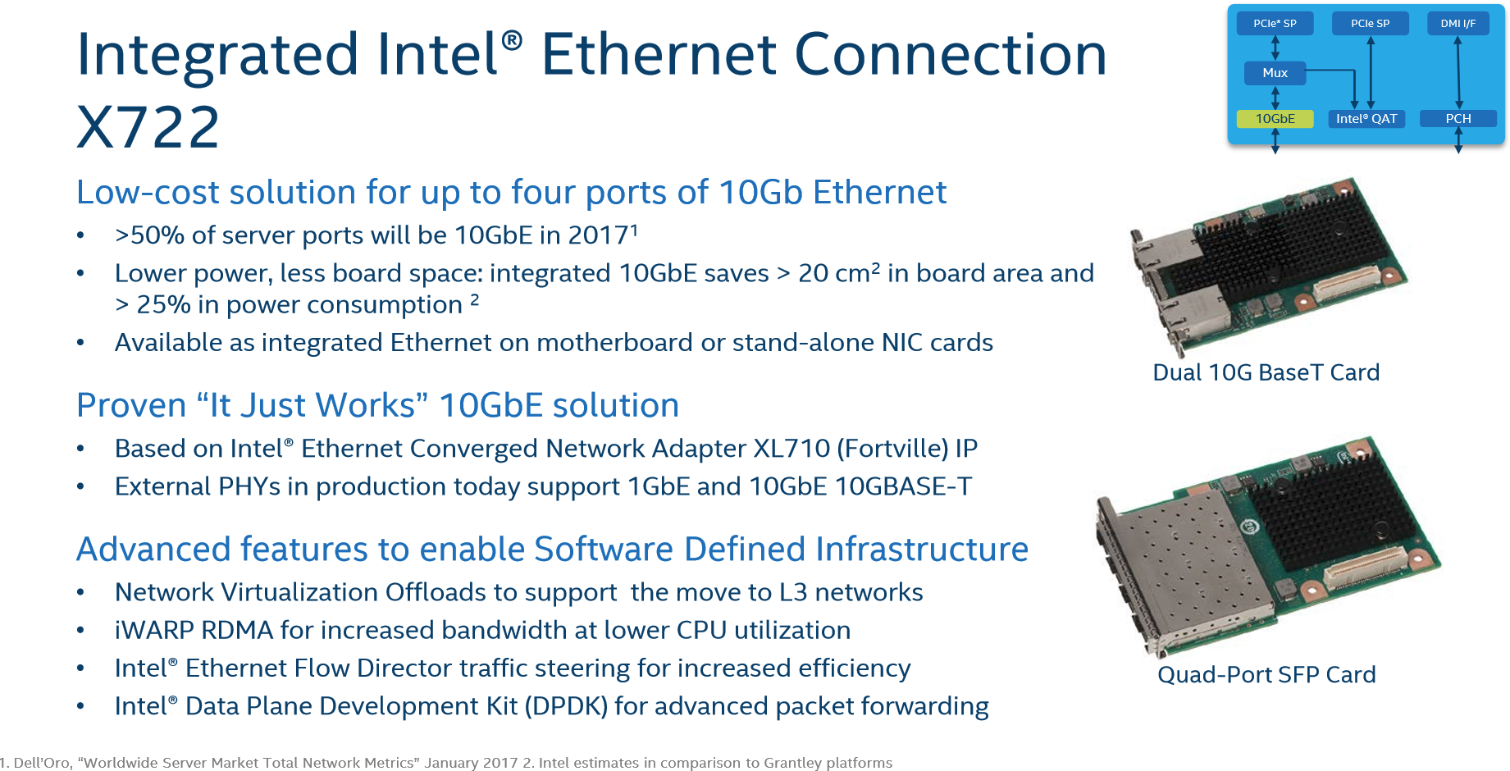
There are several 14nm chipset options that range from a 15W TDP to 26W. Interestingly, the LBG-L and LBG-T hubs offer the same features, only one has a lower TDP. We suspect these power-optimized PCHs are manufactured using a 14nm+ process. We do know they cost more.
Integrated 10Gb Ethernet will likely enjoy quite a bit of support from enterprise customers. Intel claims the PCH-based approach results in 25% less power consumption than PCIe add-in cards. iWARP RDMA support, which bypasses the OS and kernel to reduce CPU utilization and network latency, is an enticing addition. Notably, Omni-Path uses RDMA, so it fits into the Intel's comprehensive networking approach.
MORE: Best CPUs
Get Tom's Hardware's best news and in-depth reviews, straight to your inbox.
MORE: Intel & AMD Processor Hierarchy
MORE: All CPU Content
Current page: The Lewisburg Chipset
Prev Page The Mesh Topology & UPI Next Page Test Platforms & How We Test
Paul Alcorn is the Editor-in-Chief for Tom's Hardware US. He also writes news and reviews on CPUs, storage, and enterprise hardware.
-
the nerd 389 Do these CPUs have the same thermal issues as the i9 series?Reply
I know these aren't going to be overclocked, but the additional CPU temps introduce a number of non-trivial engineering challenges that would result in significant reliability issues if not taken into account.
Specifically, as thermal resistance to the heatsink increases, the thermal resistance to the motherboard drops with the larger socket and more pins. This means more heat will be dumped into the motherboard's traces. That could raise the temperatures of surrounding components to a point that reliability is compromised. This is the case with the Core i9 CPUs.
See the comments here for the numbers:
http://www.tomshardware.com/forum/id-3464475/skylake-mess-explored-thermal-paste-runaway-power.html -
Snipergod87 Reply19926080 said:Do these CPUs have the same thermal issues as the i9 series?
I know these aren't going to be overclocked, but the additional CPU temps introduce a number of non-trivial engineering challenges that would result in significant reliability issues if not taken into account.
Specifically, as thermal resistance to the heatsink increases, the thermal resistance to the motherboard drops with the larger socket and more pins. This means more heat will be dumped into the motherboard's traces. That could raise the temperatures of surrounding components to a point that reliability is compromised. This is the case with the Core i9 CPUs.
See the comments here for the numbers:
http://www.tomshardware.com/forum/id-3464475/skylake-mess-explored-thermal-paste-runaway-power.html
Wouldn't be surprised if they did but also wouldn't be surprised in Intel used solder on these. Also it is important to note that server have much more airflow than your standard desktop, enabling better cooling all around, from the CPU to the VRM's. Server boards are designed for cooling as well and not aesthetics and stylish heat sink designs -
InvalidError Reply
That heat has to go from the die, through solder balls, the multi-layer CPU carrier substrate, those tiny contact fingers and finally, solder joints on the PCB. The thermal resistance from die to motherboard will still be over an order of magnitude worse than from the die to heatsink, which is less than what the VRM phases are sinking into the motherboard's power and ground planes. I wouldn't worry about it.19926080 said:the thermal resistance to the motherboard drops with the larger socket and more pins. This means more heat will be dumped into the motherboard's traces.
-
bit_user ReplyThe 28C/56T Platinum 8176 sells for no less than $8719
Actually, the big customers don't pay that much, but still... For that, it had better be made of platinum!
That's $311.39 per core!
The otherwise identical CPU jumps to a whopping $11722, if you want to equip it with up to 1.5 TB of RAM instead of only 768 GB.
Source: http://ark.intel.com/products/120508/Intel-Xeon-Platinum-8176-Processor-38_5M-Cache-2_10-GHz -
Kennyy Evony jowen3400 21 minutes agoReply
Can this run Crysis?
Jowen, did you just come up to a Ferrari and ask if it has a hitch for your grandma's trailer? -
bit_user Reply
I wouldn't trust a $8k server CPU I got for $100. I guess if they're legit pulls from upgrades, you could afford to go through a few @ that price to find one that works. Maybe they'd be so cheap because somebody already did cherry-pick the good ones.19927274 said:W8 on ebay\aliexpress for $100
Still, has anyone had any luck on such heavily-discounted server CPUs? Let's limit to Sandybridge or newer. -
JamesSneed Reply19927188 said:The 28C/56T Platinum 8176 sells for no less than $8719
Actually, the big customers don't pay that much, but still... For that, it had better be made of platinum!
That's $311.39 per core!
The otherwise identical CPU jumps to a whopping $11722, if you want to equip it with up to 1.5 TB of RAM instead of only 768 GB.
Source: http://ark.intel.com/products/120508/Intel-Xeon-Platinum-8176-Processor-38_5M-Cache-2_10-GHz
That is still dirt cheap for a high end server. An Oracle EE database license is going to be 200K+ on a server like this one. This is nothing in the grand scheme of things.
-
bit_user Reply
A lot of people don't have such high software costs. In many cases, the software is mostly home-grown and open source (or like 100%, if you're Google).19927866 said:An Oracle EE database license is going to be 200K+ on a server like this one. This is nothing in the grand scheme of things.